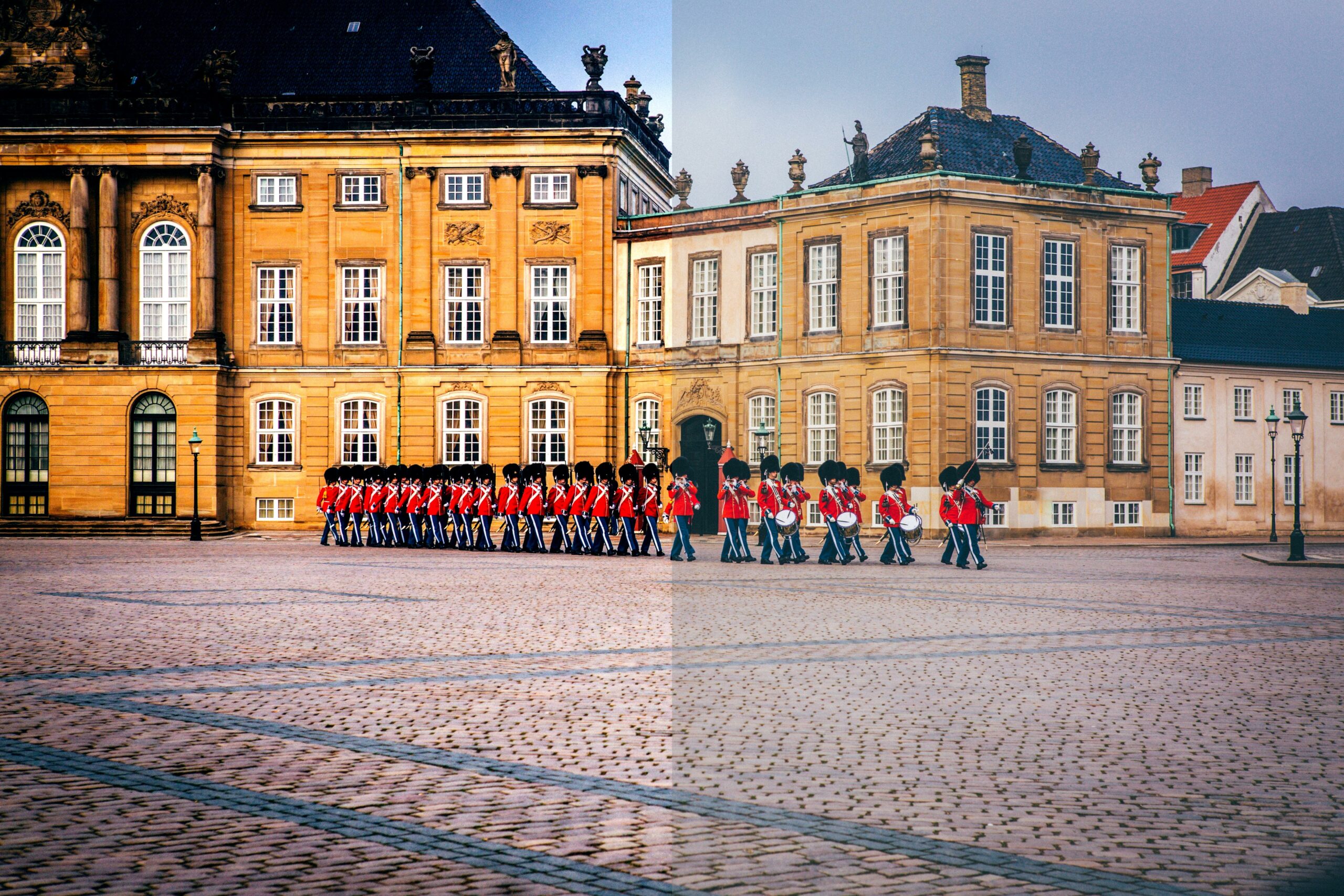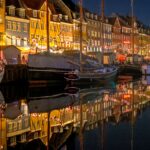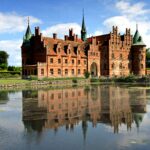Are you ready to embark on a journey that will take you deep into Denmark’s enigmatic charm? Get ready to uncover the lesser-known aspects of this Nordic wonderland as we dive into 5 intriguing facts that will make you fall in love with this captivating country. From its rich history to its vibrant culture, Denmark has a lot to offer to the curious traveler. So, grab your passport and join me on this adventure as we discover the secrets that make Denmark truly special.
5 Interesting Facts About Denmark
Denmark, with its rich history and vibrant culture, is a treasure trove of fascinating facts that showcase its unique charm. From its world-renowned swimming facilities to its commitment to bicycle-friendly cities, Denmark offers a myriad of intriguing aspects waiting to be unveiled. So, let’s dive into the enigmatic charm of Denmark and discover five interesting facts that will capture your imagination.
1. The World’s Best City for Swimming
Denmark takes its love for swimming to a whole new level, boasting the world’s best city for this water activity. Copenhagen, the capital of Denmark, offers an abundance of magnificent swimming facilities where locals and tourists alike can enjoy a refreshing dip. From its stunning coastal areas like the Amager Strandpark to its charming harbor baths, Copenhagen offers a wide variety of options for everyone to indulge in the joy of swimming.
Dive into the crystal clear waters of Copenhagen’s numerous swimming spots and experience the unparalleled bliss of this aquatic paradise.
2. The World’s Largest Toy-Making Company
When it comes to bringing smiles and joy to children’s faces worldwide, Denmark can proudly claim to be the home of the world’s largest toy-making company. LEGO, a beloved brand enjoyed by generations, originated in Denmark in 1932. With its iconic interlocking bricks and endless creative possibilities, LEGO has captured the hearts of millions around the globe.
Let your imagination run wild with LEGO, the Danish-born toy empire that has sparked creativity and endless hours of fun for children everywhere.
3. The Highest Cancer Rate in the World
While Denmark is known for its picturesque landscapes and vibrant cities, it is also home to a startling statistic – it has the highest cancer rate in the world. Various factors contribute to this unfortunate reality, including lifestyle choices and genetic predisposition. However, Denmark’s commitment to research and healthcare has sparked countless advancements in cancer treatment and prevention, offering hope for the future.
Denmark’s battle against cancer serves as a reminder of the importance of investing in medical research and raising awareness about prevention and early detection.
4. The World’s Most Bicycle-Friendly City
Denmark’s dedication to sustainable and eco-friendly transportation is exemplified by its accolade as the world’s most bicycle-friendly city. Copenhagen, with its vast network of dedicated cycling lanes, prioritizes the well-being of cyclists, making it a haven for biking enthusiasts. The city’s commitment to promoting a healthy and environmentally conscious lifestyle has even inspired other cities around the world to follow suit.
Pedal your way through Copenhagen’s enchanting streets and experience firsthand why it holds the title of the world’s most bicycle-friendly city.
5. The First Slave-Trading Nation to Prohibit Slavery
Denmark’s history is not without its dark chapters, but it is also a nation that has taken significant steps towards progress. Denmark holds the distinction of being the first slave-trading nation to prohibit slavery. In 1792, Denmark became the trailblazer, enacting a law that abolished the transatlantic slave trade. This landmark decision reflected Denmark’s commitment to human rights and served as a catalyst for change worldwide.
Denmark’s courageous stance against slavery stands as a testament to the power of individuals and nations to confront their past and work towards a more equitable future.
As you immerse yourself in Denmark’s enigmatic charm, these five intriguing facts offer a glimpse into the country’s multifaceted nature. From its love for swimming and dedication to sustainable transportation to its contributions in the realms of toys and human rights, Denmark continues to captivate and inspire both its residents and visitors.
Unveiling the fascinating facts that lie within Denmark’s borders showcases the country’s allure and enigmatic charm to the world. Whether diving into the crystal-clear waters of Copenhagen or exploring the captivating history behind Denmark’s LEGO empire, there’s something truly special about this Nordic nation. So, join us on this journey and experience the wonders of Denmark for yourself.
Denmark, a country known for its enchanting beauty and rich history, has an abundance of interesting and captivating facts waiting to be discovered. From its breathtaking landscapes to its vibrant culture, there is so much to explore. If you’re curious about the fun facts that make Denmark truly unique, you won’t want to miss out on our list of fascinating discoveries. Click here to dive into the world of “fun facts about Denmark” and unravel the hidden wonders that await you in this extraordinary Scandinavian gem. Happy exploring!
10 Surprising Facts About Denmark
[youtube v=”_ZmHWL6PAHE”]
Denmark, a small Scandinavian country, is home to a host of surprising and interesting facts. In this article, we will delve into 10 key facts about Denmark that you may not be aware of. So, let’s explore!
Basic Facts
Let’s begin with some basic information about Denmark. As of the time of this article, Denmark has a population of approximately 5.8 million people, ranking it 115th in the world. The country covers a land area of 42,430 square kilometers (16,382 square miles) and has a population density of 137 people per square kilometer (354 people per square mile). Due to the erosion of its islands by tides, accurately calculating Denmark’s land size is a challenge. It is worth noting that Greenland, the world’s largest island, has been declared a part of the Kingdom of Denmark since 1953.
“Denmark’s unique geography and connection to Greenland make it a fascinating country to explore.”
Natural Beauty and Geography
Denmark may be a relatively flat country, with an average elevation of 34 meters (112 feet) above sea level, but it is the fourth lowest country in the world. However, it does have its high point, Møllehøj, which stands at 170.85 meters (561 feet). This location is marked by a millstone, the remains of an ancient mill. Denmark’s beauty extends beyond its land, with the majority of Greenland, a part of Denmark, covered by a massive ice sheet up to two miles thick.
The Economy of Denmark
Denmark boasts the 38th largest export economy globally, with total exports valued at $83.2 billion. The country maintains a fairly balanced import-export ratio, with imports totaling $84.4 billion. Notable exports include packaged medicaments (10.8% of total exports), cars (5.27%), and refined petroleum (2.99%). One significant export that stands out is pig meat, accounting for 3.4% of Denmark’s total exports. Denmark is one of the world’s leading exporters of pork, with an estimated 24-28 million pigs for a population of 5.7 million people.
“Denmark’s robust economy and diverse export industry contribute to its global significance.”
The Danish Monarchy
The Danish monarchy holds a remarkable distinction—it is the oldest continuing monarchy in the world, having existed for over a thousand years. The lineage of kings in the modern Kingdom of Denmark can be traced back to Harthacnut, father of Gorm the Old, who reigned in the early 10th century. Additionally, Denmark bears the distinction of having the oldest continuous flag in the world. The iconic red flag with a white cross, known as the Dannebrog or Danish cloth, was officially adopted in 1625. In fact, the use of the red color with the cross dates back even earlier, to at least 1307.
“Denmark’s royal heritage and enduring flag symbolize its rich history and traditions.”
National Animals and World Heritage Sites
Denmark has not one, but two national animals—the mute swan and the small tortoiseshell butterfly. The mute swan was declared the national bird in 1984, replacing the Skylark. Moving on to Denmark’s cultural and historical heritage, the country is home to 13 world heritage sites, with eight of them recognized by UNESCO. These sites include the famous Jelling Mounds, Runic Stones, and Church, which are considered the birthplace of Denmark as a nation.
“Denmark’s rich biodiversity and cultural heritage make it a treasure trove of natural and historical wonders.”
In conclusion, Denmark is a country filled with surprises and fascinating facts. From its unique geography and connection to Greenland to its robust economy and rich historical heritage, Denmark has much to offer. Whether it’s the world’s oldest continuing monarchy or its impressive collection of world heritage sites, this small Scandinavian nation never fails to amaze.
So, what are your thoughts on these surprising facts about Denmark? Do you want to see more articles on this topic? Don’t hesitate to share your thoughts and experiences in the comments below. And remember to join us for our next FTD Facts episode. Stay tuned!
“Denmark, a land of surprises and wonders—explore the beauty and history of this remarkable country.”
FAQ
Q: What is Denmark known for?
A: Denmark is known for various reasons, such as having the world’s best city for swimming, being the world’s largest toy-making company, having the highest cancer rate in the world, having the world’s most bicycle-friendly city, being the first slave-trading nation to prohibit slavery, having the world’s oldest continuously used national flag, and being one of the world’s happiest countries.
Q: Which is the best city for swimming in Denmark?
A: Denmark boasts the world’s best city for swimming, which is a popular destination for locals and tourists alike. Its beautiful coastline and well-maintained beaches provide the perfect setting for swimming enthusiasts to enjoy the crystal-clear waters and stunning natural scenery.
Q: What is the significance of Denmark’s toy-making industry?
A: Denmark takes pride in having the world’s largest toy-making company, which has gained international acclaim for its innovative and high-quality products. This industry not only contributes significantly to Denmark’s economy but also brings joy to children worldwide through its diverse range of toys and games.
Q: Why does Denmark have the highest cancer rate in the world?
A: Unfortunately, Denmark has the highest cancer rate in the world. This can be attributed to various factors, including genetic predispositions, lifestyle choices, environmental factors, and the effectiveness of cancer detection and reporting systems. Efforts are being made to address this issue through cancer prevention programs, early detection campaigns, and advanced research in the field of oncology.
Q: Which is the most bicycle-friendly city in Denmark?
A: Denmark takes pride in being home to the world’s most bicycle-friendly city. With an extensive network of bike lanes and a strong cycling culture, this city provides a safe and convenient environment for residents and visitors to explore its charming streets, iconic landmarks, and picturesque neighborhoods on two wheels.
Q: What is the historical significance of Denmark in relation to slavery?
A: Denmark holds the prominent historical distinction of being the first slave-trading nation to prohibit slavery. This crucial step towards abolishing the inhumane practice took place in the early 19th century and showcased Denmark’s commitment to human rights and equality. This milestone remains an integral part of Denmark’s historical legacy and contributes to its reputation as a progressive and socially conscious nation.
Q: What is the significance of Denmark’s national flag?
A: Denmark’s national flag holds the distinction of being the world’s oldest continuously used national flag. The iconic red and white flag, known as the Dannebrog, has been a symbol of Danish history, culture, and unity for centuries. Its origins can be traced back to a legendary battle in the early 13th century and it continues to be proudly displayed during national celebrations and events.
Q: Why is Denmark considered one of the world’s happiest countries?
A: Denmark has earned its reputation as one of the world’s happiest countries due to its strong social welfare system, high standard of living, and emphasis on work-life balance. The Danish people prioritize well-being, equality, and sustainability, resulting in a society that values happiness and contentment. Various factors, including education, healthcare, and social support, contribute to Denmark’s consistently high rankings in global happiness surveys.
- Unlock 6000+ words beginning with he: A comprehensive analysis - April 20, 2025
- Mastering -al Words: A Complete Guide - April 20, 2025
- Master Scrabble: High-Scoring BAR Words Now - April 20, 2025
















